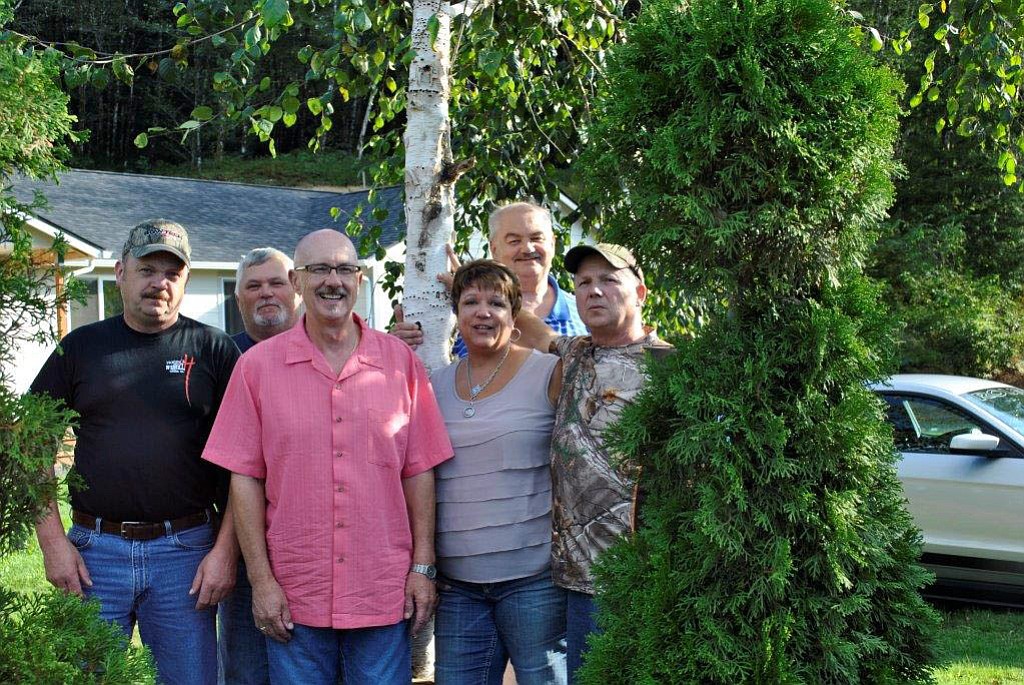Marie Bruin opened the envelope and there it was, eight lines down, in typed letters: Peggy Leona Wilson.
For most of her adult life, 55-year-old Bruin searched for clues about her past.
She spent years imagining what she would say to her family if she ever met them.
A new state law that took effect this summer allowed thousands of adoptees to access their original birth certificate.
For the first time, Bruin knew her biological mother’s name. But despite the new information, she planned to proceed cautiously.
She knew she was born to a white mother and a black father at Vancouver Memorial Hospital.
“The last thing I wanted, was to be that call that says, ‘Hey, your mom had another child and it’s me’ and change or modify that person’s opinion of that person for the rest of their life,” said Bruin, who lives in Tacoma. “I wanted to be very careful not to do that.”
Instead, within minutes of receiving her birth certificate, more than five decades of mystery disappeared.
“My daughter, in this day of social media, went online and found the whole family on Facebook in probably less than five minutes,” Bruin said.
It turns out, Bruin wasn’t the only one searching. Her family had been looking for her, too.
Her mother died, but Bruin met her brothers and extended family for the first time this summer.
One of her brothers told her, “I don’t know what it was like where you grew up, but I want you to know if you had grown up with us, you would have had five brothers and you wouldn’t have worried about anything,” Bruin said.
Bruin, who described herself as a guarded person, said she was amazed at how quickly she felt at ease around her biological family.
“The most profound thing was that everyone kept saying, ‘You look just like Peggy … You look just like your mom. You stand just like her,'” Bruin said.
This Thanksgiving, one of Bruin’s biological brothers spent the holiday with her and she exchanged well wishes with her other newly discovered family members.
“What do you want to know?” Bruin’s older brother, Ernie Stenholm asked. “How fabulous it is and how fantastic and how wonderful it is?”
Bruin’s older brothers had enlisted a private detective in their search.
“She’s my sister, and it was just such a missing part of my life,” said Stenholm, who lives in Raymond. “She thought maybe we wouldn’t want to meet her or see her. She found out different.”
The law
Many adopted people have two different versions of their birth documents.
One often lists their biological parents and the other is an amended certificate, showing whatever the judge ordered, perhaps only naming foster or adoptive parents.
The new law allows those adopted on or before Oct. 1, 1993, to access the original version of their birth certificates, unless a parent has filed a form denying access.
The law took effect in July, and more than 2,580 people have requested their original birth certificate, many of which had been kept in sealed files, from the state’s Department of Health.
Parents can fill out contact-preference forms, but those who wish to remain anonymous must still provide medical history.
Sen. Ann Rivers, R-La Center, was a key player in crafting the law.
Still searching
Even with a biological parent’s name, the search can be difficult.
When James Harmon, 47, of Woodland received his original birth certificate, he spent about eight days planted in front of his computer, searching.
“I’ve been wanting this my entire life,” he said of finding his mom.
Harmon said he’s struggled ever since he was a child, when he found out he was adopted.
“I traveled the world lost,” he said.
Harmon enlisted the help of the Washington Adoption Reunion Movement, which often works with the state and serves as a confidential intermediary between the courts, biological parent and adoptees.
Pam Queen of WARM said the new law empowered many adoptees to do more of their own searching, but the nonprofit continues to be inundated with requests for help. Queen said the agency not only helps with the search, but also with how to reach out to possible relatives.
And there are people such as Donna Wells of Battle Ground. They call her a “search angel.”
She’s lost count of how many people she’s helped over the years. For the past two decades, she’s scoured public records for complete strangers to help them reconnect with family members.
Wells, whose only daughter died while she was still young, said she “understands the sense of loss.”
She doesn’t get attached to the people she helps.
“I have to detach myself. I can’t get a bond going with them,” she said.
But for two decades, she has helped an estimated couple thousand people.
“I always appreciate when people come back, send me a note and tell me how they are doing,” she said.
Bruin’s Thanksgiving
Bruin missed meeting her biological mother by a couple of years.
“But I have no doubt there’s (so much of her) in her boys, and I’m proud that it seems as though I’m something like her. And I have at least some of the strength of what she had and that really helps me see where I fit in,” she said.
Bruin said she doesn’t give a verbal “thanks” at her holiday meal every year. This Thanksgiving was different, she said.
“I think this is a year when clearly it’s worth articulating because it really has been so overwhelming and so great,” Bruin said.
This year, she said, she toasted to her new family.
Bruin said she’s thankful the new law will help “provide others an opportunity to access their heritage.”




